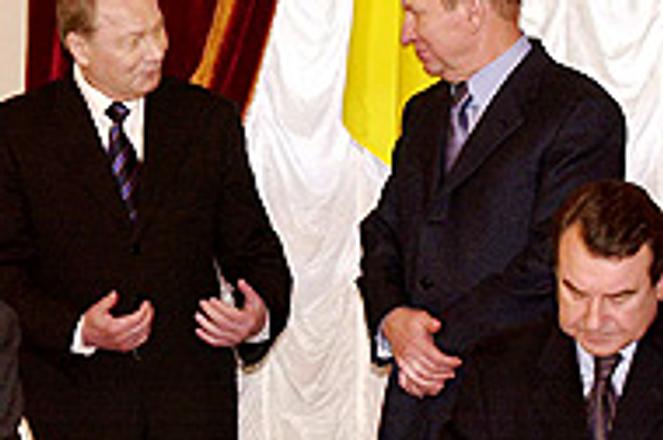SLOVAKIA is shifting its alliances.photo: TASR
UKRAINE shares a border with Russia, Belarus, Poland, Slovakia, Hungary, Moldova and Romania. Its geographical position makes the political crisis in that country potentially explosive. It is also responsible for much of its convoluted history and conflicting allegiances.
The Slovak Spectator spoke with political analyst Alexander Duleba to find out more about this nation on the verge of civil war, and why the issue is of paramount importance to not only Slovakia, but also to all of Europe.
The Slovak Spectator (TSS): Some say the Ukrainian elections are historical, Why?
Alexander Duleba (AD): These are the first real presidential elections since Ukraine gained its independence from the Soviet Union. The first presidential elections in 1991 weren't even elections as we know it. It was more a referendum in the advantage of the chair of parliament - Leonid Kravchuk. The subsequent presidential election in 1994 offered a choice of two candidates who had no real differences. Neither had a programme of reforms nor supported European transformation.
In the 2004 presidential elections, Ukrainians voters for the very first time have a choice of real alternatives. They can cast their vote for a post-communist Ukraine or a democratic one.
TSS: The world has been watching the elections closely. Some still fear civil war.
AD: Yes, the risk is real. The reason for this is historical, cultural and demographical. The western portion of Ukraine was, up to World War II, part of the Austrio-Hungarian Empire, and then later Poland. In 1939, on the basis of an agreement between Vyacheslav Molotov and Joachim von Ribbentrop, foreign ministers from Germany and Russia respectively, the Soviet Union invaded. This part of Ukraine has no connection with the Russian Republic or even the Czar's Russia. Its citizens' moral values are different from the rest of the country.
Central Ukraine, all the way up to the Dneper River, joined Russia late - in the 18th century. And the eastern region (which is demanding autonomy) has been part of Russia since the 17th century.
The western-most part of Ukraine joined the Soviet Union only after World War II, in 1947. The Krym area was forced to join Ukraine only in 1954 when Ukrainian-born Nikita Chrushchev, decided to give the Krym peninsula to the Soviet Socialistic Republic. It was a gesture to celebrate the anniversary of Kozaks Hetman's oath to the Russian Czar. These decisions were really strange and historically impact the country's unity.
TSS: Who would benefit from Ukraine's division?
AD: Division is part of the political war that is waging in Ukraine. The Supreme Court had to decide [what to do about rigged elections] and [Prime Minister Viktor] Yanukovich had to do something fast, otherwise he would have fallen out of the political game. He had two choices: violence or suggest separation. He chose the second. I believe that the threat [of division] is real. But I see it mainly as a political tactic.
The current Ukrainian government would prefer if [outgoing president] Leonid Kucsma could stay in his post. A violent solution would legitimize his stay in office both from an internal and external point of view.
TSS: What would happen to Slovakia if civil war broke out?
AD: Civil war in Ukraine would affect the whole of Europe because it would influence economic, political, diplomatic and security relationships throughout the region. Ukraine is our neighbour, so if war broke out, we would have a problem with refugees. Always when there is a civil war, people try to escape. Chechnya is a case in point. These refugees represent a large number of Slovakia's immigrants.
A civil war in Ukraine would destabilize Eastern Europe. Relations between the EU and the Russian Federation would strain. NATO relations would get tricky. The risk of other conflicts would grow as well.


